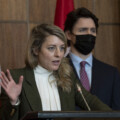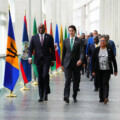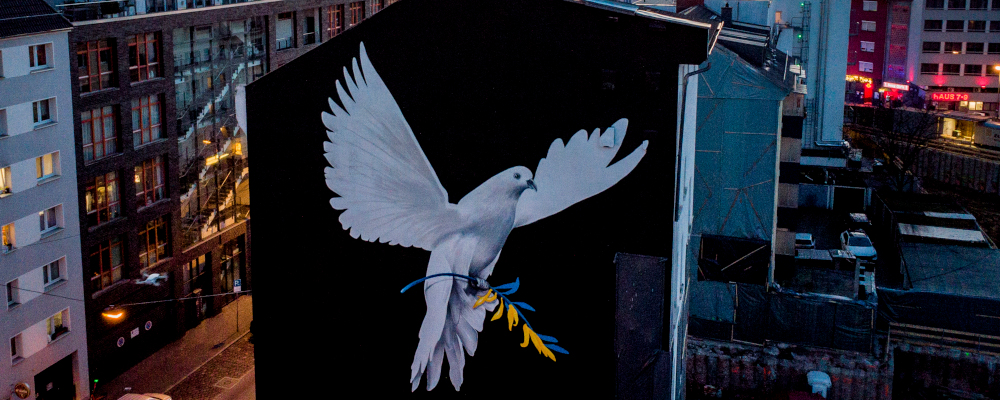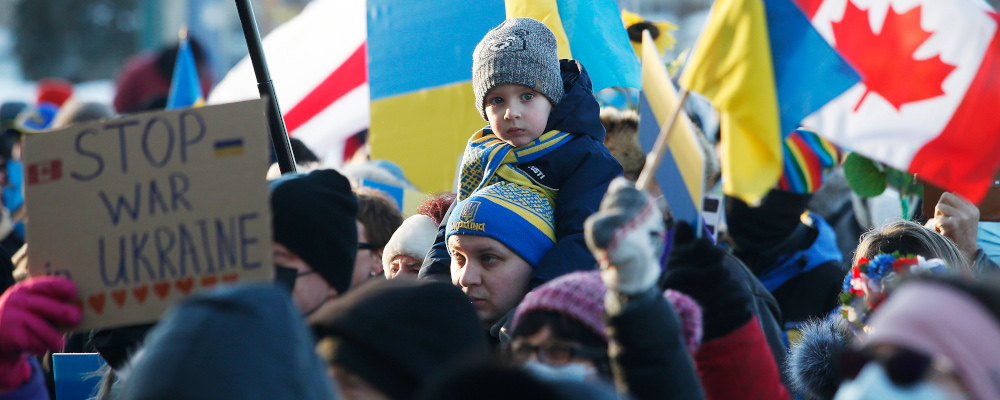My friend Tom Palmer once told me a story about giving a talk to some students in Canada. One of the attendees was a bit of a foreign policy hawk. She believed that Canada should have joined the Coalition of the Willing to support the U.S. war in Iraq. She was also, Tom recalls, rather upset with the idea of shooting prisoners captured while planting IEDs, a rumoured tactic for combatting a deadly insurgency technique.
That’s war, said Tom. We don’t get to pick and choose the good parts and reject the bad parts. “It shows a lack of understanding to endorse a war and then express shock when it entails violent, bloody, and even lawless behavior”, he argues in his book.
On February 22, Russia invaded Ukraine. The news was horrifying. A friend asked me how we were all supposed to keep working like everything was normal. I had no answer. The videos and stories from the ground were and are heartbreaking. They’re meant to show us just how awful things are, just how badly Russia is behaving.
Did you think those families hiding from bombs in the Kharkiv subway aren’t exactly like yours? Notice the baby with the rainbow pop-it toy among them and think again.
A kindergarten and an orphanage were bombed. An ambulance was bombed. Rows of tiny beds are lined up, ready for preschoolers, in a shelter. Hours-old, tiny babies from a neonatal ICU unit are rushed underground and nurses try to care for them under blankets.
A father cries, and so do his children, as they are separated by the conflict. For some reason, someone records it. I wish they could have privacy, but I can’t look away. His children will try to find safety with their mother. He will stay behind to fight. They all sob.
That’s war.
Ukrainian guards fire warning shots to disperse crowds of Ukrainian people trying to flee Kyiv by train. Families are torn apart because while mothers and children can leave, men 18–60 must stay and defend the country. Conscription steals the lives of the people it sweeps up and warps them into the lives of killers. The fact that there’s an obvious right side and an obvious wrong side does not mean that everything the right side does is worth cheering for.
Even respect for the willing resistance is grim. People should find out how brave, how remarkable they are in better ways.
But that’s war.
In the words of Zelenskyy in his remarkable address to Russians:
“War is a big distress, and it has a big price, in all meanings of this word. People lose their money, reputation, quality of life, freedom, and most important, people lose their loved ones. Lose themselves. A lot of things are always lacking in war. But what is in abundance is pain, dirt, blood, and death. Thousands, tens of thousands of deaths.”
Foreign policy hawks have been having a heck of a time. Mitt Romney’s scoffworthy-in-2012 insistence that Russia was the greatest geopolitical threat looks pretty smart in 2022. There are plenty of we-told-you-sos to go around.
Naivete probably did play a part in foreign policy that made Russia’s invasion more likely. But when I see frantic pointing to the terrible acts in those first days of conflict that are also war crimes, I see naivete there, too. I don’t know what else to call an expectation that war crimes wouldn’t happen during a war. If you have the power to prevent war crimes, why not just prevent the war?
I am a strident peacenik. It’s not because I’m surprised that all of this is possible. It’s not because my eyes are screwed tightly shut. It’s because my eyes are open. I haven’t been in a war, but I believe those who have been when they tell me what it’s like. I see the headstones and I feel a visceral reaction because every single person mattered. Every single person cut down was once some mother’s, some child’s, somebody’s whole world.
I don’t think we should pretend that war can always be avoided, especially with someone like Vladimir Putin as a geopolitical player. It doesn’t follow that we should not only hope for but really expect better.
Peace is precious, rare, and fragile. We’ll never hold onto it if we believe it’s also impossible.
I don’t know what the world—or anyone, really—should do. I don’t know how bad it will get, and it could get very bad. Everything feels a lot more scary and uncertain today than it was a week ago. But I’m still sure of this: All of those terrible things you see in the coverage from Ukraine are baked into war.
So no one who can manage it should apologize for pushing for, striving for, and believing in peace.
Recommended for You

RCMP spending to protect MPs may have risen 112% since 2018, as Canadian politicians face greater rise in threats

Geoff Russ: A future Conservative government must fight the culture war, not stand idly by

David Mulroney: Foreign Minister Joly, Xi Jinping’s China doesn’t do ‘dialogue’

J.L. Granatstein: Trudeau’s submarine charade










